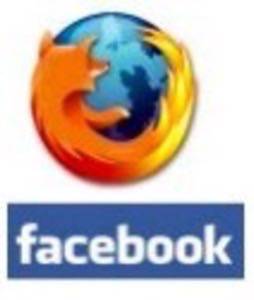Firefox doesn’t keep track of the number of users it has but Asa Dotzler, Mozilla’s director of community development, said today that the company estimates that there are 270 million people using the browser. That’s 35% more users than Facebook has signed up for accounts (200 million), and almost triple the number of people Facebook says log in to the social network every day (100 million).

Why compare user numbers between a browser and a social network? Because there’s every reason to believe that the two technologies are converging in the near term future. Here’s why we believe that Firefox should be Facebook’s biggest competition.
These numbers from Firefox are pretty conservative. DownloadSquad’s Lee Mathews estimates that the real number could be closer to 340 million Firefox users. That’s three and a half times the number of people Facebook says log in to its service daily.
This isn’t an apples and oranges situation, either.
Though we may not be sure about his prediction that Google will act before Firefox, we think Forrester’s Jeremiah Owyang offers a very compelling vision of the future of browsers and social networks in his excellent report The Future of the Social Web.
“… in a bid to extend the reach of its new browser, Chrome, we expect Google to build OpenID and its associated friend connections into the browser; look for Firefox and eventually Internet Explorer to copy this feature. Facebook and MySpace will also likely build a way for users to surf the Web within the Facebook experience, retaining the social functionality. These connections won’t be perfect, but they’ll allow social networks to colonize communities and other parts of the Web, extending their experience out to other sites through the shared ID. As a result, in two years, portable identities will become a ubiquitous part of the online experience as they reach maturity.”
It’s only logical to extrapolate from that analysis that the line between browsers and social networks will become much less clear and the two types of software will very likely compete with each other.
The Browser as Social Network, Social Network as Browser
Within months not years, the Firefox browser is likely to look very, very different. The company must be scrambling to innovate even more than we can know, now that its primary source of revenue (Google) has launched its own browser. Both Firefox and Facebook are probably working very hard to figure out new models of generating advertising revenues – something both are dependent on but neither can take for granted.
Three weeks ago we wrote about Firefox’s plans to build the command-line-type Ubiquity system into the address bar. That means your “apps” will be accessed and controlled through your browser.

If Facebook is looking more and more like an Operating System with its app platform, Firefox is too – with the added advantage of having access to apps on the desktop, the web and integrated Rich Internet Applications. Facebook launched its own desktop interface last week and we would be willing to bet that it is going to become much more browser-like in the near future, but Firefox has a huge running start in that department.
Facebook already has its own frames it uses for links shared through the site, holding the browsing experience inside the Facbook ethos. It’s not hard to imagine a search bar being placed inside that frame.

In that same post about Ubiquity in Firefox we also looked at the Firefox user experience team’s experimentation with removing the tabs from the browser and replacing them with an interface that looks a lot like iTunes.

Just like iTunes is all about the playlists, organizing content by type and category, Firefox may also start offering ways to organize the information you consume passively by browsing. Two weeks ago we covered proposals by Firefox lead designer Alex Faaborg to capture events, location and other microformatted information and serve it up other applications like Google Earth and calender.
Would Facebook like to build value on top of the data it collects from your browsing around the web? You’d better believe it would, undoubtedly that’s a big part of the vision behind the much celebrated Facebook Connect. Facebook Connect requires that users give their permission to Facebook each time they want to connect it and the relative handful of pages that support the Connect login system. Firefox has a huge advantage in that it has de facto permission by users to interact with all the data from all the pages we visit in the browser. Facebook is going to want that too.
Firefox’s Faaborg sees the browser as a first-class player in questions of Identity and Data Portability as well (much like Owyang predicts above). All Firefox has to do is start offering messaging between users and a News Feed of user activity across all the social networks people use already. Firefox could use Facebook Connect, for one thing. How well could Facebook compete with social software that prioritizes multiple personas (work/friends seeing different sides of you) and breaks free from the walled gardens of standard social networking? Those are approaches that Facebook will no doubt be moving towards soon as well.
Finally, Firefox is fighting hard in the mobile space. This is one place where Facebook already has a huge leg up. It will be a primary point of competition between the two companies in the future.
Facebook has a staff proven very skilled at building fundamentally social software. That’s less the case with Firefox, whose developers and developer ecosystem are grounded in a history of the browser as a private affair.
Picture this, though. Add messaging, public profiles and activity streams to Firefox and we can imagine Ashton Kutcher level hype – no problem. (Firefox is already 300 times bigger than Kutcher, though!) The browser team may or may not be able to execute on these types of ideas across all their users, but their odds aren’t bad and the browser turning social network already has far more active users than the social network turning browser does.















